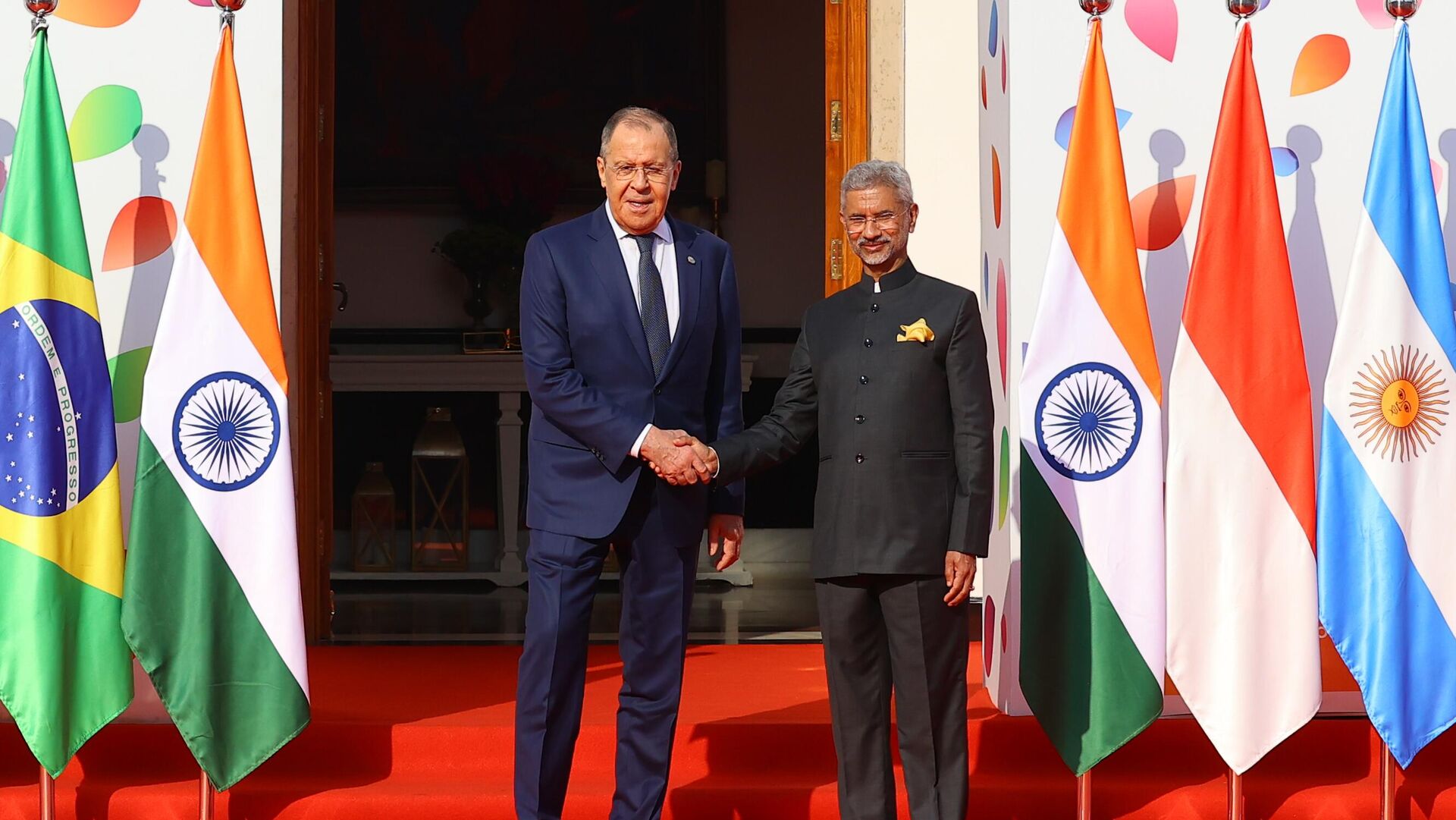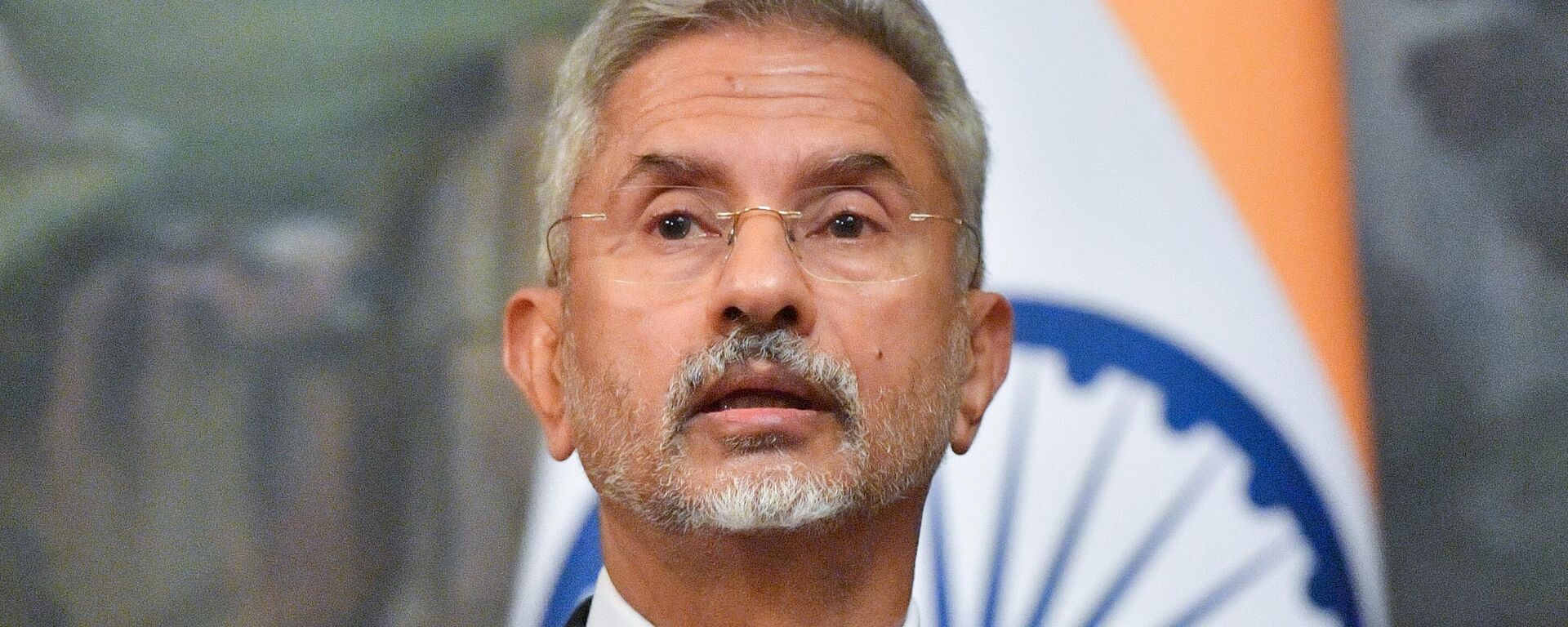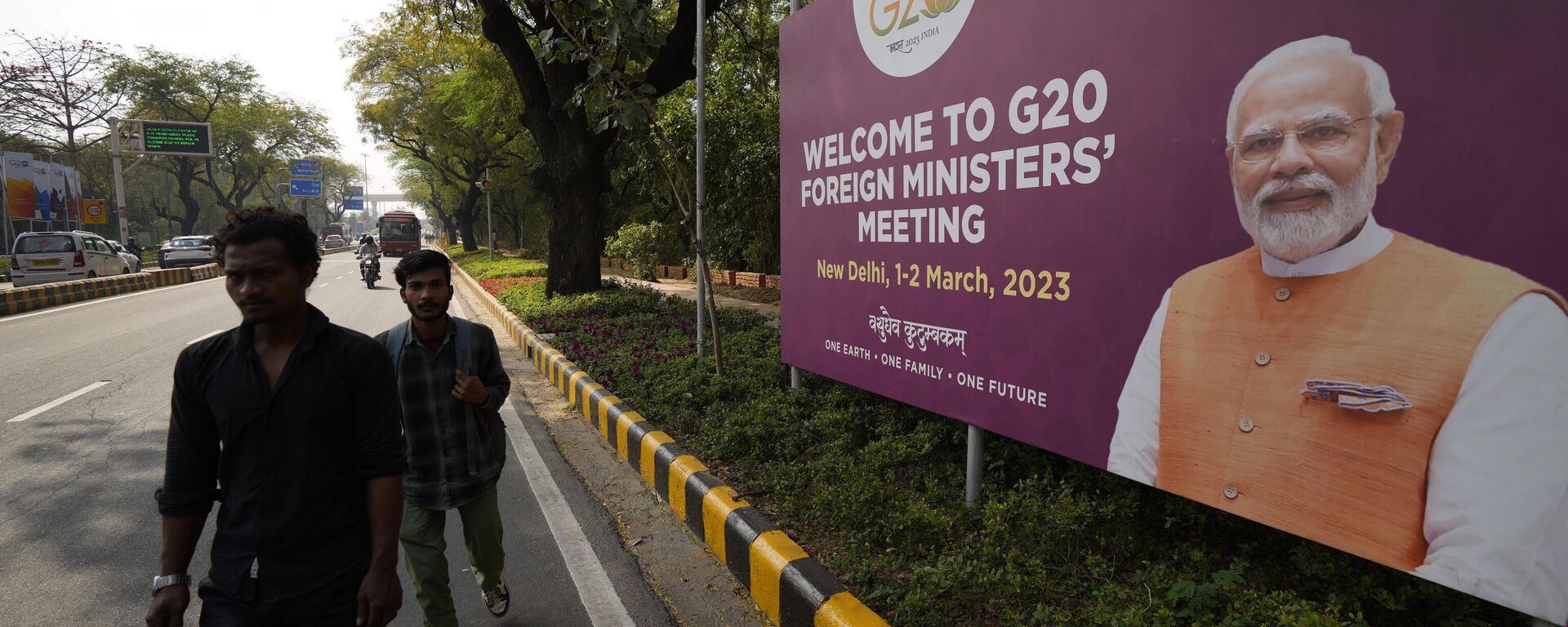India's G20 Presidency Comes at Polarizing Time But Delhi Proving Credibility as Global Leader
17:31 02.03.2023 (Updated: 18:27 02.03.2023)

© Russian Foreign Ministry's Press Service
/ Subscribe
With the G20 foreign ministers’ meeting entering its second and final day on Thursday, New Delhi has proven itself the perfect host, demonstrating its credibility, autonomy and ability to convince others in the the Global South to take a balanced position on the crises of the day, international affairs expert Dr. Anuradha Chenoy has told Sputnik.
Speaking to foreign delegates at the G20 foreign ministers’ meeting on Thursday, Indian Foreign Minister S Jaishankar called for the world’s largest economies to set aside their differences to “find common ground and show the way” on the crises thrashing the planet, including the impact of the pandemic, “concerns about supply chains, side effects of ongoing conflicts, concerns about the debt crisis and climate disruption.”
Jaishankar highlighted flaws in the current global architecture, saying the structure of the Security Council that was established after the Second World War no longer reflects today’s realities.
“Current global architecture is in its eighth decade. The number of members of the UN has quadrupled in this period. It neither reflects today’s politics, economics, demographics or aspirations,” the Indian top diplomat stressed.
He added that the longer the necessary reforms are put off, “the more the credibility of multilateralism stands eroded. Global decision-making must be democratized if it is to have a future.”
India’s presidency of the G20 could not have come at a more critical time, says Dr. Chenoy, a veteran international affairs expert and retired professor at the Centre for Russian and Central Asian Studies at Jawaharlal Nehru University in New Delhi.
“India being host is extremely significant at this juncture because (i) India would like to present the overall interests of the Global South without claiming to be their leader. (ii) The Indian presidency comes after Indonesia and will be followed by South Africa and Brazil- so the Global South holds a key. (iii) India was effective in providing a consensus voice during the Bali Summit in a fractious environment. India would like to bring the polarized and hostile forces to some common points during the India meetings- especially today with the foreign ministers meeting - where the West may not want to discuss anything except Ukraine and exclude Russia. (iv) India will put all its energy for mediating in this meeting so dialogue trumps anger and intolerance,” the academic said in an interview.
New Delhi’s status as host “is a matter of pride and privilege,” Chenoy noted, with Asian nation “emerging with credibility and legitimacy in the international arena,” offering a “fair assessment on the conflict in Ukraine,” discussing the legitimate security interests of all parties and refusing to base its stance on “any single narrative.”
India has “shown strategic autonomy and despite massive Western and other pressure taken an independent position from the beginning and continue[s] to do so.” Furthermore, “India’s traditional position of opposing unilateral sanctions have helped many in the Global South to also understand how these are impacting them and that they are becoming collateral damage because of these sanctions regime against Russia. India’s position can convince others in the Global South to remain independent despite pressure.” Chenoy said.
Cooperation With Russia
Ahead of Russian Foreign Minister Sergei Lavrov’s meeting with Foreign Minister Jaishankar, the Russian Foreign Ministry expressed its firm support for India “in its G20 presidency and its commitment to promoting a unifying agenda that will restore confidence in multilateral diplomacy and prevent the fragmentation of the global economy.”
Lavrov and Jaishankar held what the Indian Foreign Minister characterized as a “wide-ranging discussion” on Wednesday, saying the two sides “exchanged views on our bilateral cooperation and G20 issues.”
“We support our Indian friends in their quest to strengthen genuine multipolarity. We are united in our commitment to shape a more just and polycentric world order,” Lavrov said. “Moscow and New Delhi consistently oppose such neo-colonial practices as illegitimate unilateral sanctions, threats, blackmail and any other kinds of pressure against sovereignty states.”
India once again proved the extent of its partnership with Russia and its neutrality in the Ukrainian crisis recently, according to Dr. Chenoy.
“India has taken a tough stand just last week, by abstaining again from a Ukraine and US-drafted resolution in the UN General Assembly asking for peace though Russian withdrawal. India’s explanation needs to be noted by those who talk peace. India argued that: ‘a process that excluded one side could never lead to a credible and meaningful solution of the conflict.’ That is why India wants all sides to be present at all meetings it hosts this year as president of G20,” the observer stressed.
India has also made clear its position on the grain deal, the Russia-Ukraine agreement facilitated by the UN and Turkey aimed at restoring grain shipments from Ukrainian ports in the Black Sea, Chenoy noted.
“India has made clear its position that all commodities are impacted both by wars and unilateral sanctions. To posit one and not the other is falsehood,” she said.
Foreign Minister Lavrov accused the West of “shamelessly burying” the grain deal by failing to live up to commitments to ease restrictions on Russia’s agricultural and fertilizer exports.


